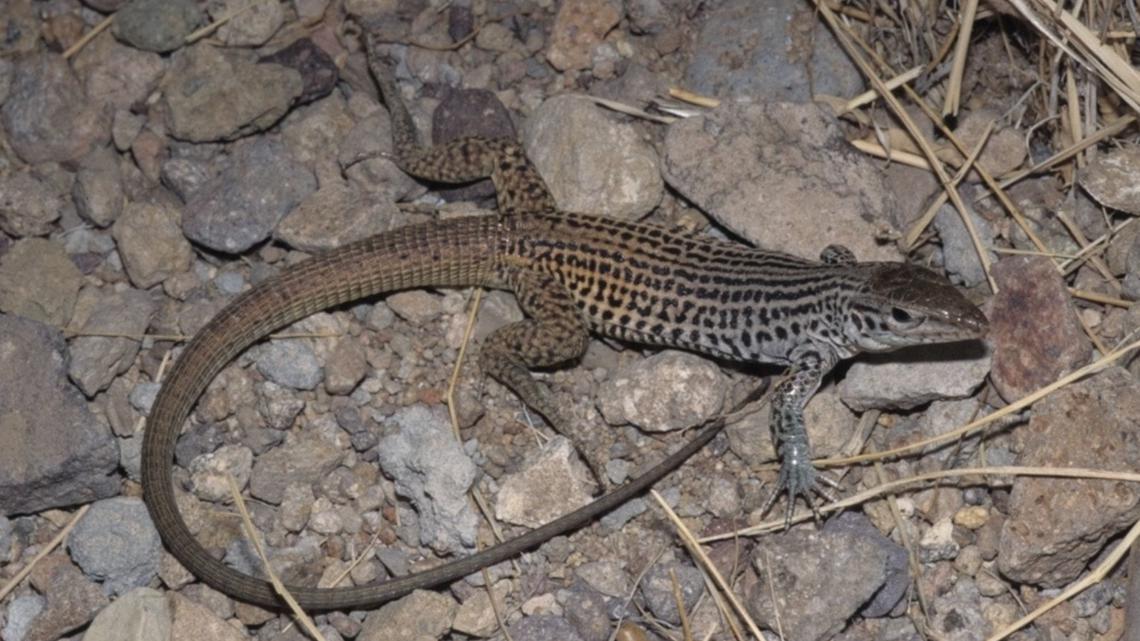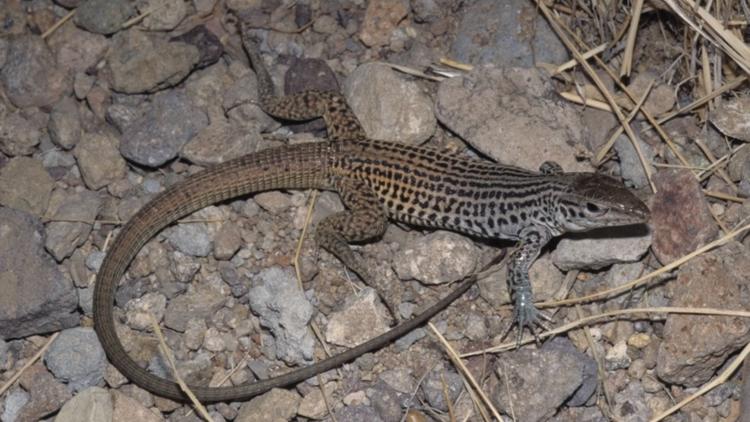ARLINGTON, Texas — Out in western Texas, there's an extremely rare lizard called the Dixon's whiptail.
The fast-moving reptile – which measures about 8 to 12 inches in length and is gray in color with white or yellow stripes – resides in the Chinati Mountains. UT-Arlington researchers have reason to believe it might not only be rare, but actually an endangered species.
The uncertainty over its status is due to the similarity between the Dixon’s whiptail and a slightly smaller and less rare reptile called the common checkered whiptail, UTA said in a press release.
"Until now, researchers have been unable to tell if the animals are the same genetically, but that may soon change. A group of biologists from The University of Texas at Arlington has begun a project to sample the DNA of the two types of lizards," the university said.
If the two prove to be different genetically, then the Dixon’s whiptail may be eligible for protections as an endangered species.
“Thanks to a grant from the Texas Parks and Wildlife Department, we will be going to the mountains in far West Texas to capture and sample DNA from these critters,” said Corey Roelke, a professor of instruction in biology at UTA. He and biology Professor Matthew Fujita are the lead investigators on the project. “It’s not easy to catch them. They’re all female, blend in well to their surroundings, and are very fast. We will rely on lizard lassos (basically fishing poles with tiny lassos on the top) and sticky traps to catch animals for sampling their DNA.”


After the biologists at UTA gather the DNA samples for both lizards, they will analyze them using a variety of genetic sequencing tools.
“By examining thousands of single-nucleotide polymorphisms distributed across the genomes, we will be able to tell once and for all if Dixon’s whiptail is a different species,” said Roelke. “If it is distinct, then it is rarer than the common checkered whiptail and it will qualify for both state and federal protection under the Endangered Species Act.”
And if there isn't evidence to support them being different, they could be lumped under the same name, effectively eliminating the endangered species designation.
The project is set to start in January 2025, the university said. Their goal is to have the project finished by the end of that calendar year.
Another animal found in Texas – the red-cockaded woodpecker – recently shed its longtime endangered species designation following a decades-long conservation effort. The bird had been considered endangered for 54 years.
More Texas headlines:


